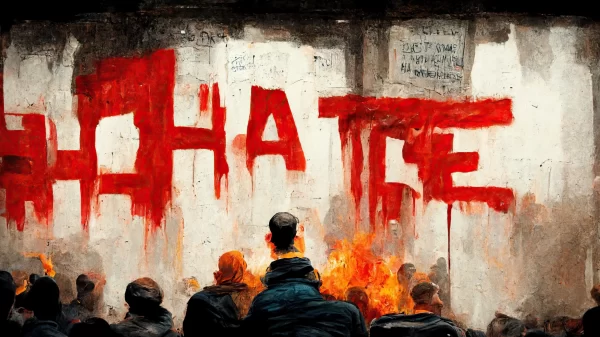By Stephen Cooper
In about two weeks, Alabama Governor Robert Bentley — himself a desperate cartoonish candidate for clemency from the people of Alabama (who he has so profoundly betrayed) — will be the sole arbiter of clemency for Mr. Vernon Madison, an African-American death row inmate; On May 12, Mr. Madison is scheduled to be executed in the death chamber at Holman Prison, in Atmore, Alabama, for his 1985 conviction for the murder of a Mobile police officer.
Think how Vernon Madison’s family feels — themselves innocent of any crime; for Chrissake those folks are just the man’s family! — knowing only one governor in Alabama has ever granted clemency during the entirety of Alabama’s brutal, bloody, and, as history will ultimately record, barbaric experimentation in state-sanctioned death.
Think how Mr. Madison’s family feels knowing that that one and only time a Governor of Alabama decided a human being was worthy of mercy was in 1999, when Governor Forrest Hood “Fob” James, Jr., — on his way out of office — commuted the death sentence of a white woman, Ms. Judith Ann Neelley (condemned for torturing and killing a thirteen-year-old girl).
What minute hope can Mr. Madison’s family muster that Governor Bentley and his staff — which may still include the mercurial and potentially manipulative influence of Ms. Rebekah Caldwell Mason — will pay close attention to the clemency petition Madison’s lawyers will surely file in their last ditch efforts to save their client’s life?
Even if Governor Bentley does studiously consider Mr. Madison’s clemency petition and finds it meritorious, does anyone think he’ll feel compelled to break the mold of 196 years of Alabama history (since statehood) by extending mercy to a poor black man like Madison?
Furthermore, does anyone in their right mind think that even if Governor Bentley scrutinized Mr. Madison’s clemency petition and believed, in his heart of hearts, that clemency was warranted — that he would deign to grant it right now — while he burns under the scorching, unremitting glare of media klieg lights currently feasting over his sickly, overly-sexed in-office shenanigans?
Almost 90 years ago, famed Supreme Court Justice Oliver Wendell Holmes wrote in a Supreme Court opinion (Biddle v. Perovich, 274 U.S. 480, 486 (1927)) about the importance of executive clemency, stating it “is not a private act of grace from an individual happening to possess power. It is part of the Constitutional scheme. When granted it is the determination of the ultimate authority that the public welfare will be better served by inflicting less than what the judgment fixed.”
If Holmes were still alive and around to debate the issue, a reasonable question to him from the citizens of Alabama might be: What happens when the “ultimate authority” has demonstrated by his own salacious conduct and bullheaded refusal to resign that he is in no position to rightly judge what best serves the public welfare?
Perhaps an even better query of Holmes and all those who continue to support and promote the death penalty in Alabama (and elsewhere) might be: Doesn’t the screwed up clemency process really alert us – in the same way that a gigantic flashing neon sign might — that the only real “ultimate authority” who should be making decisions about which humans live or die, is God?
About the Author: Stephen Cooper is a former D.C. public defender who worked as an assistant federal public defender in Alabama between 2012 and 2015. He has contributed to numerous magazines and newspapers in the United States and overseas. He writes full-time and lives in Woodland Hills, California.





















































